#Homogenic tour
Text
this is just a reminder that you can wear whatever the fuck you want to a concert !!!!!
#i saw a tiktok already talking about what fans ‘should’ wear to louis’ tour#and i’m like 🤨🥴#nah#we are not turning this into an ‘aesthetic’ competition#everyone is wearing whatever they want and feel comfortable in and whatever represents THEIR OWN style#tired of the homogeneity of concert outfits#you are a person made up of layers and multitudes#with your own individual sense of styles creativity and preferred comfort level#not a fucking aesthetic
0 notes
Text
Between the Black and Gray 18
First / Previous / Next
Fen spent her time exploring the ship - she was aboard The Dreams of Hyacinth - talking with people and learning as much as she could.
At first, she was viewed with skepticism. Who is this person who speaks with an odd accent wandering around asking operational questions, but soon after the captain let everyone know that Fen was their guest and allowed to ask questions, most everyone opened up. She wasn't allowed to view the reactors, the weapons, or navigation, but she was allowed to check out just about everywhere else.
Fen was constantly surprised at how many humans there were. In hindsight it was silly, it was a Human Empire ship, but she had grown up on a Gren station among just as many K'laxi as humans as well as all the other different sapients that came and went, so it was odd for her surroundings to be so homogenous. She mentioned it to Kel, one of her new friends. Kel was the type of person who adopted people and would show her around and answer her questions. She was a biologist and the head of gardening. Kel was showing Fen the greenhouse. "I can see why you'd think it's odd Fen, but all Imperial ships are like this. Sometimes we get K'laxi exchange personnel, and sometimes one of us will spend a tour with them, but it would be odd for there to be more than humans on a human ship... wouldn't it?"
Fen was astonished. There was a whole gardening department! There was row after row after row of vegetables and fruits all growing under strong lights. The greenhouse smelled of soil and was warm and moist and utterly fascinating. She had never spent time around plants. These days, they reminded her of Ma-ren and their 'visits.' She was following Kel around and grilling her about what she was growing. "The cilantro is ready to harvest. We'll keep some back to let it bolt for coriander - that's the seed - but the rest we'll eat."
"Cilantro? What's that?"
"It's this one, see?" Kel gestured to a low, bushy plant, deep green. Fen leaned down and brushed against it and it released oils giving a burst of a spicy smell. "It's an herb, it's popular with lime-" she gestured to some small trees along a back wall "-and protein.
"Huh. I'd like to try it sometime."
Kel glanced down at her pad. "Today is Taco Tuesday! You can try it at lunch today."
"Taco?" Fen felt the odd word as she said it slowly.
"You'll love them, I promise" Kel smiled.
After the garden tour finished, Kel took Fen to the canteen and she tried her first taco. Watching Kel with skepticism, she picked up the folded, fried tortilla and turned her head and bit into it like she was shown. The flavors were unlike anything she had ever tasted. The onion, the lime, the highly spiced protein - she didn't think to ask what it was - and yes, the cilantro danced and pranced in her mouth as she chewed. It was an experience.
"Kel, this is amazing!" Fen tore into the taco with gusto and devoured both of them. Kel ate hers slightly slower, but still they were both done quickly. Kel went back up to get a few more.
"So Fen, what was it like, growing up on a Gren station?" Kel placed another taco down on Fen's plate.
"I mean, I didn't know anything else, so it was pretty normal for me?" Fen talked around her taco, then swallowed, and continued. "My parents were gone early, and I was taken in by the Gen'mil familial line."
"Familial line? That's K'laxi isn't it?"
Fen nodded. "That's right. They brought me up. I can speak K'inmar as well as Colonic, That's where I got these earrings." Fen turned her head and her piercings flashed. "My wife was K'laxi."
"And the tattoos?" Kel was wearing a shirt that covered them, but had clearly been watching Fen before. Fen raised an eyebrow.
"They're K'laxi yes, but I got them after I left, it's a memorial."
"I see. For your wife" Fen nodded quietly. "I'm sorry, my condolences."
"It's all right." Fen looked up at the buffet. "Any chance we can get more of those Tacos?"
Before Kel could get up to get more tacos, a shadow appeared behind Fen. "Who is your friend Kel? Is this that trash that was dumped from that old bot-jumper that we pinged?" She was a women a little shorter than Fen, wider, more voluptuous, with closely cropped blond hair. She was wearing a sneer as she looked upon Fen.
"Hello Ellen, this is Fen." Kel's voice was venomous.
Ellen scoffed. "Oh, my mistake. I didn't realize that the bots named their pets too." Ellen crossed her arms. "Fen, is it? What's with the cat earrings?"
Fen didn't say anything. Her eyes flicked up to Kel who tried to apologize with her eyes.
"Cat got your tongue?" Ellen's laugh was harsh and deep. She bent down and put her face even with Fen's. "Maybe you just don't understand human speech. Maybe this will help." She started meowing and hissing, like a housecat.
Fen reacted faster than Kel thought possible. Grabbing a fisfull of short hair, she grabbed the back of Ellen's head and slammed it against the table. The noise of Ellen's head striking the table caused all the conversation and noises of cutlery in the canteen to cease. Dazed, Ellen mumbled a swear, but before she could do anything else Fen rose out of her chair, grabbed her wrist, and spun her around in one motion, lifting her arm up to her skull. Ever time Ellen squirmed, Fen lifted the arm higher, until Ellen was standing on her toes.
"I speak Colonic just fine." She hissed. "I also speak Lemilar and K'inmar. I even know a little Innari. My parents died when I was young and I was taken in by a K'laxi familial group. My wife - who is dead, by the way, shot by gangsters - was K'laxi." Ellen tried to turn her head and Fen lifted the arm even higher. The blood ran out of Ellen's face and her eyes widened. "I was raised on a Gren station, do you know the Gren? I assume not. I understand that most of the Empire never ventures beyond their own corner of the galaxy." She lifted Ellen's arm up another millimeter. She whimpered. "The thing is, The Gren are taller than us, about equally muscled, and have thick hides that can nearly turn a knife. They have those reverse articulated legs though, you know them? I'm sure you have, you've probably at least seen a photo of one. Those legs means their hips are exceedingly complex and fragile. It's rather easy to dislocate a Gren's leg from their hips. Painful too. I've used it to my advantage more than once when one of them gave me shit about how I was raised, or who my partners were."
Fen took a moment to look around. She had the whole canteen's attention. Kel was looking at her with a combination of fear and admiration. Nobody seemed to be coming to Ellen's defense. In the back in the door was Captain Cooper who stood there with her arms crossed, watching impassively. Fen turned back to Ellen.
"The thing is, Ellen, humans shoulders are unique in the galaxy. They're complex things. We can throw better than just about anyone else we've seen, but that comes at a cost. Just like the Gren, we can dislocate easily." Fen lifted Ellen's arm up higher and Ellen let loose a whimpered scream.
Ellen tried to rise even taller. "Don't." She panted. "Please."
Fen leaned in even closer to Ellen's ear. "Don't what?" Her lips were almost touching Ellen's ear.
Ellen was on the tips of her toes, trying her hardest to not hang from her arm. "Don't... dislocate my... arm."
"Lieutenant Ellen Hannaford." Captain Cooper's voice was clear in the canteen. "What are you doing?"
"C-Captain, she... she's gonna" Ellen could only pant and gasp around the pain.
"I expected more... eloquence from my officers." Captain Cooper raised an eyebrow. "Ms. Whitehorse?"
Fen lowered Ellen a millimeter, but still held firm. "Ellen had decided to insult my heritage as well as the ship and AI who brought me here. I'm... sensitive to my heritage. Who I am is important to me, and someone who I've never met does not get to come up to me and start flinging slurs."
"Indeed." Captain Cooper's face was impassive. "Is anyone here willing to corroborate Ms. Whitehorse's story?"
Kel stood to attention. "Captain, I concur with our guest's description of events."
Captain Cooper eyed Kel, and turned to the rest of the canteen. "Does anyone wish to come to Lieutenant Hannaford's defense?"
No takers. Fen had a hunch that Ellen had pulled a stunt like this before.
"Well then." Captain Cooper turned back to Fen and Ellen. "Ms. Whitehorse, please continue your demonstration. Show the canteen how easy it is to dislocate a shoulder."
Fen looked Captain Cooper in the eyes. She saw no trick, no hint of anything other than her making a statement. She held the captain's gaze as she lifted Ellen's arm sharply.
Elen's eyes went even wider. "What? No! No nonononono" The pop was sickening. A millisecond before the screaming, Fen could hear the groan of sympathetic pain of the rest of the canteen. Fen released her and Ellen crumpled to the ground, moaning.
Captain Cooper turned to the crowd. "There are multiple lessons to be learned here. One, we always treat our guests with respect. We are to learn from them and they us. The things that Ms. Whitehorse has learned from us today will serve her well further into human space. Two, always evaluate your opponent before you instigate something. Don't start something you can't finish. And Three, Ms. Whitehorse is correct! Our shoulders are easy to dislocate in comparison to other sapients in the galaxy. We will conduct two weeks of remedial xenobiology for all crew. Cohorts will be drawn up and classes conducted - with exams at the end." The crowd groaned and sat back down to finish their lunch. Ellen laid on the floor, sniffling. Captain Cooper stood over her. "Lieutenant, pull yourself together. Get yourself to medical and get that dislocation treated." She turned on her heel and walked out of the canteen.
Fen sat back in her seat and took a sip of water, trying not to shake. That hadn't gone like she expected, the captain told her to dislocate the bully's arm. Kel's eyes shone. "That was amazing Fen! I had no idea you knew how to fight so well!"
"It's not exactly something that one tends to advertise Kel. In my line of work, it pays to be underestimated."
"Your line of work? What do you do?"
Fen stopped. Just what does she do? Telling Kel that she was a trader didn't seem that exciting, and Gord did say that she was good enough to sign on with a Mercenary group.
"I'm a mercenary." She lied.
#humans are deathworlders#humans are space orcs#sci fi writing#humans are space oddities#humans and aliens#jpitha#writing#humans and ai#humans are space capybaras#humans are space australians#Between the black and gray
60 notes
·
View notes
Text
"Ancient World Fantasy" Reading List
(A little context to start. If you just want book recs, scroll on down to the first image.)
As I’ve been getting into RuneQuest (Wikipedia link), one striking component of the culture and community surrounding the game is that they’re very into the lore of its fictional world, Glorantha. I’m saying this as a comparison to a game like D&D, where the game is spread across tons of settings with no real sense of obligation to keep things in line with earlier editions.
Glorantha’s canon and worldbuilding has been going on since it was published in 1978 without, as far as I can tell, any big reboots. Which means that, unlike D&D, where people are bringing in all kinds of influences and doing direct adaptions of Jane Austen books and whatever, the RuneQuest game remains pretty tightly tied to the original setting. (There have been some exceptions. But not many!)
But since I run games for people who have ADHD or aren’t interested in studying up, I’ve been looking at all kinds of inspiration to drop into the game. Here are 20 novels that are roughly “ancient world” or “Bronze Age” like RuneQuest and deal with people interacting with strange gods, tight communities, and a world without fast overland travel or transferal of information.
I’m presenting them alphabetically by author’s last name.
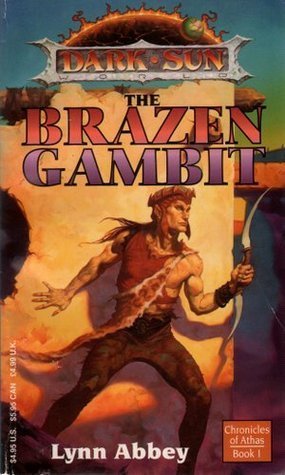
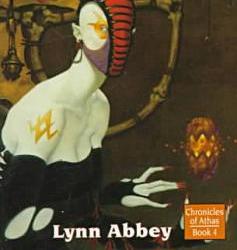
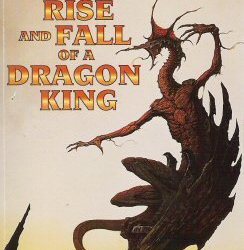
The Brazen Gambit, Cinnabar Shadows, The Rise and Fall of a Dragon King by Lynn Abbey
I'm sorry for starting this post off with licensed RPG novels, but these are good! And I don't mean "good for licensed RPG novels." I've read tons of them, and most are so bad! But these are actually fun. Good character development in a sword-and-sorcery world. It's also an ecological apocalypse world, with godlike beings oppressing common folks, leading to a lack of technological advancement and knowledge of the past.
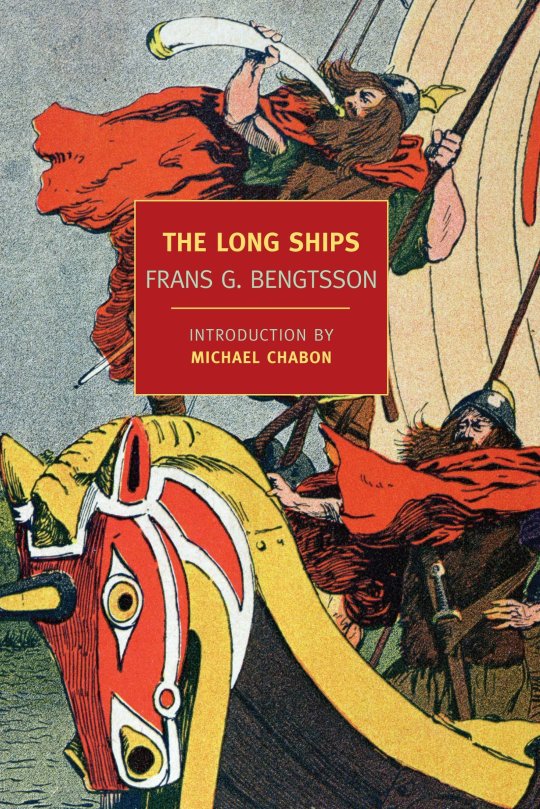
The Long Ships by Frans G. Bentsson
Written in the 1940s as a series of novellas, these stories take you on a tour of the Viking-era world, from Europe to the Middle East and beyond. Like a bunch of books on this list, this places them post-Bronze Age, so they're not officially "ancient world." But it gives a big spread of cultures, from the more clan-based Vikings to the bustling metropolises of Turkey. And it doesn't place any of them on any kind of linear advancement scale or whatever other gross way people "rate" cultures.
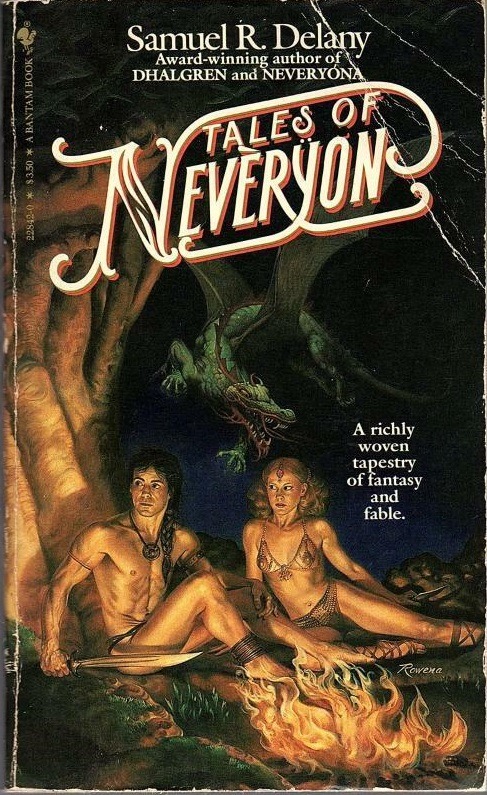
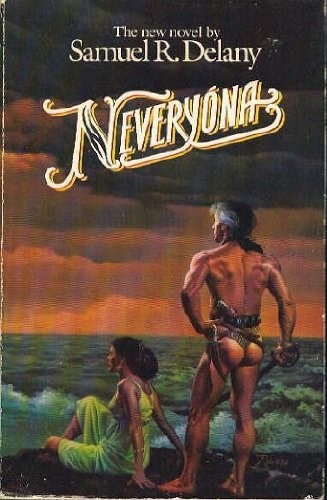
Tales of Nevèrÿon and Neveryóna by Samuel R. Delany
The master of weird sci-fi and gay historical novels, Chip Delany also wrote a fantasy epic. And it rules! Set on pre-historical(ish) Earth, these books describe the stories that maybe inform the myths we tell today? Dragons and slave revolts! A sort of "What if Game of Thrones was good?" series. Lots of good stuff about how people learn and how understanding expands.
I'm not listing the third book only because it's also a historical look at New York during the AIDS epidemic. It's an amazing book! But it strays from the "ancient world" aesthetic.
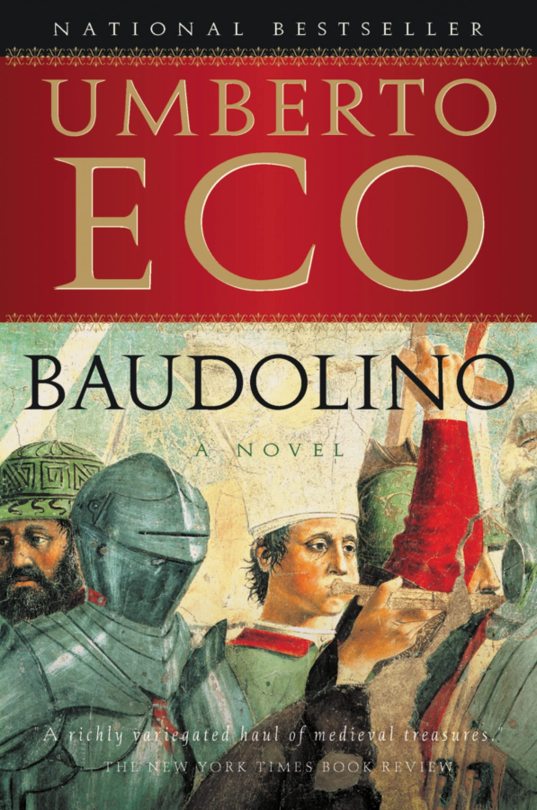
Baudolino by Umberto Eco
Another novel expressly set after the Bronze Age (this one starts in the 12th century). BUT it's about Medieval people's interaction with the knowledge they inherited from the past, specifically the myth of Prester John and the works of Herodotus.
I think I keep putting books like this on the list because roleplaying in a fantastical ancient world is not too far off from how Medieval people might have worshipped and referenced works from ancient Rome and non-European places.
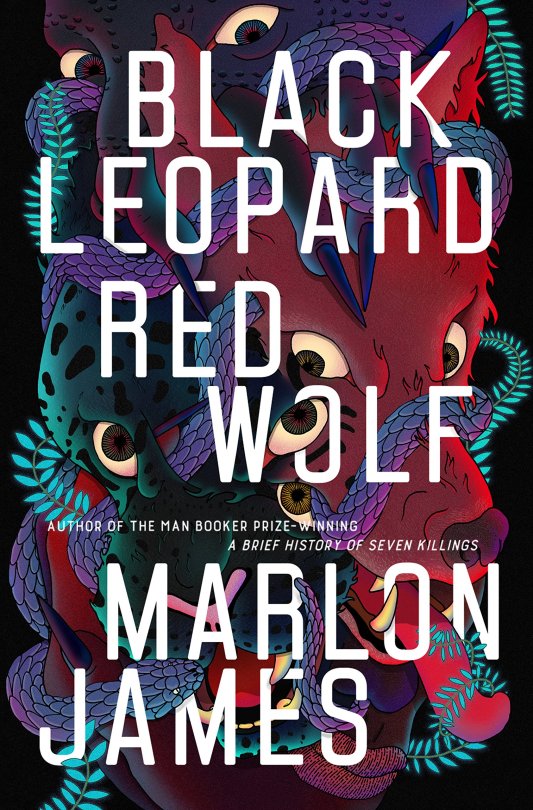
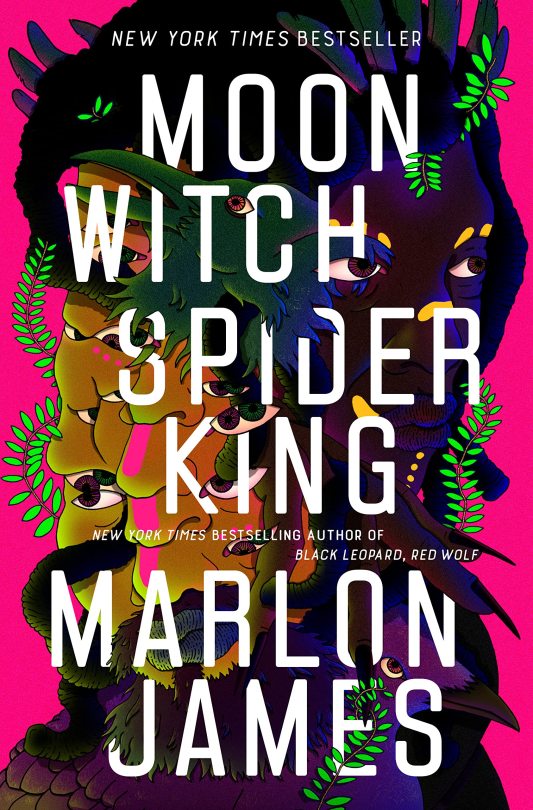
Black Leopard, Red Wolf and Moon Witch, Spider King by Marlon James
One of our best living writers! These are fantasy novels expressly set in a fantastical version of ancient/Medieval Africa. The books explore the same events from multiple points of view and are full of cool magic, awesome spirit combat, and a vast number of places and cultures that actively deconstructs most games's portrayal of fantasy Africa as a homogeneous place.
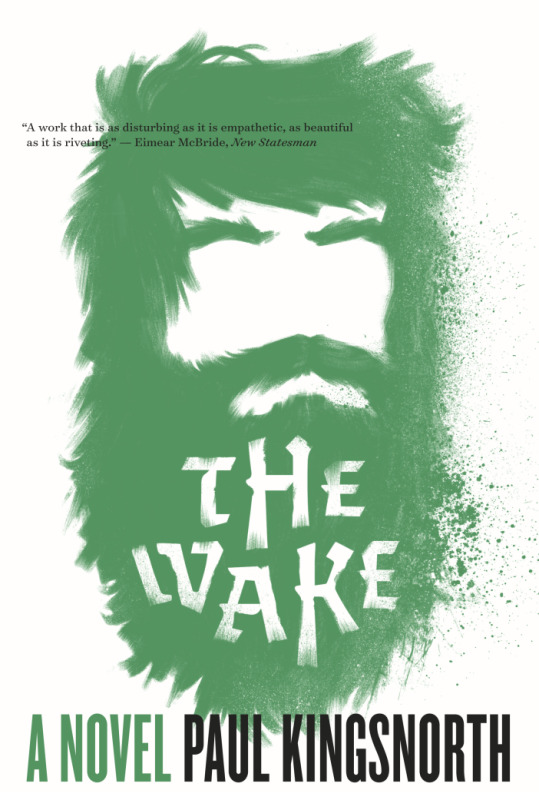
The Wake by Paul Kingsnorth
I think Kingsnorth has been outted as a sort of eco-fascist? I totally believe it, so feel free to skip this one. It's a historical novel set in England in 1066, as the Normans invade from France. It's written in a faux Middle English language and focuses on the lower classes and how they try to resist the invasion. A good reminder that "Medieval culture" (and especially the Renaissance as a time that "culture advanced") is often based on certain classes of society, such as rich people and/or men.
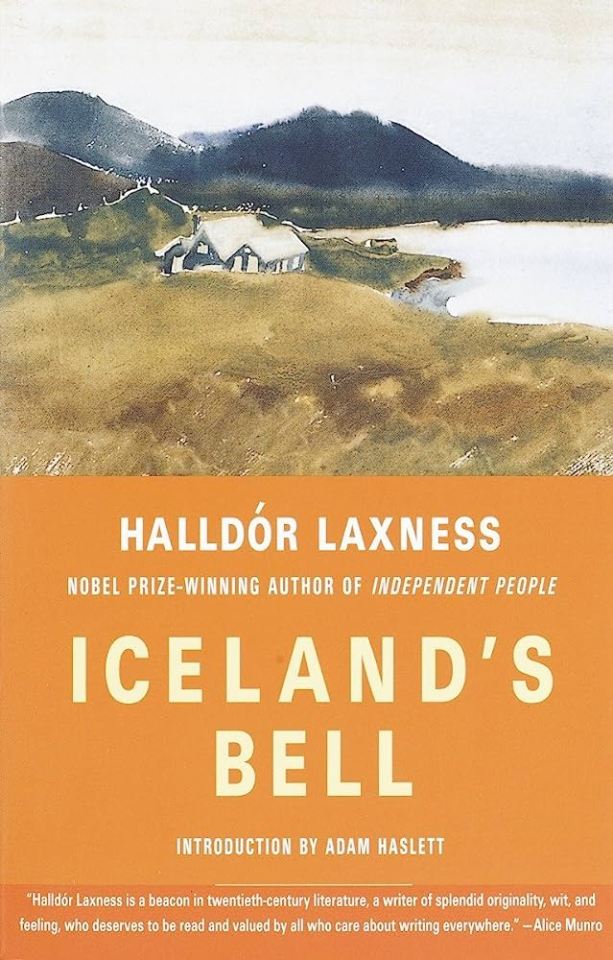
Iceland's Bell by Halldór Laxness
Speaking of how class intersects with technological advancement, this book is set in the 18th century, but it focuses on Iceland at a time when it was ruled by Denmark, and the lower classes there were under an enforced poverty. It's a book about how a rich Icelander was trying to recover the stories of his people in order to create a sense of national identity and resistance. But it's also a story about how a destitute man acts like a total weirdo when he's not allowed to fish in his own waters and is cut off from understanding his place in history.
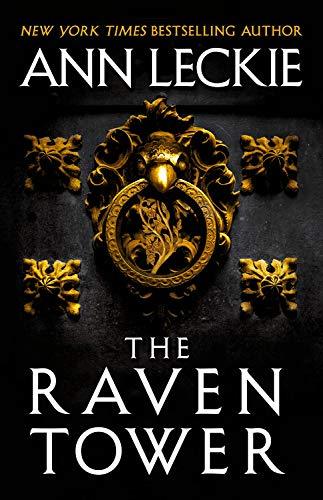
The Raven Tower by Anne Leckie
A big part of RuneQuest is people interacting with and enacting their gods. That's what this book is about! And it's about the strange vertigo that comes to people when they try to interact with the impossible timelines that gods exist on. Very good stuff.
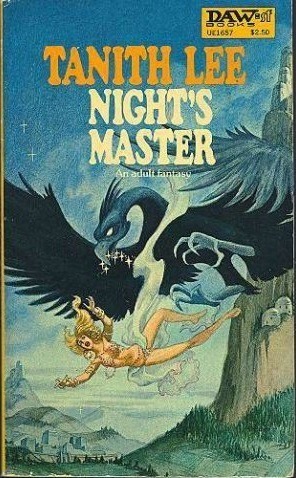
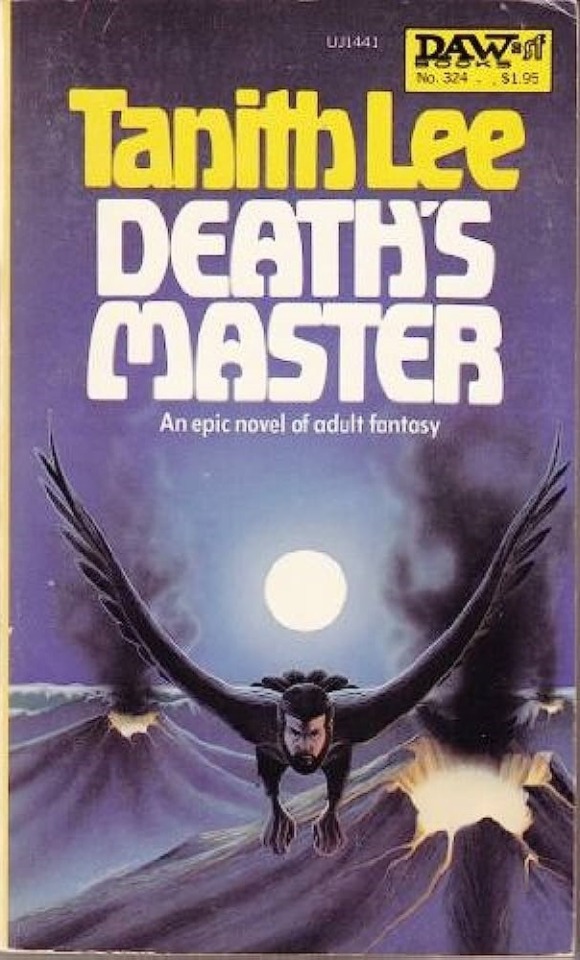
Night's Master and Death's Master by Tanith Lee
Ostensibly set on Earth back when it was flat and demons roamed the world, which is basically RuneQuest. Sort of like a series of hornier, gay bibles? With lots of gender fuckery, fun sex, and cool monsters.
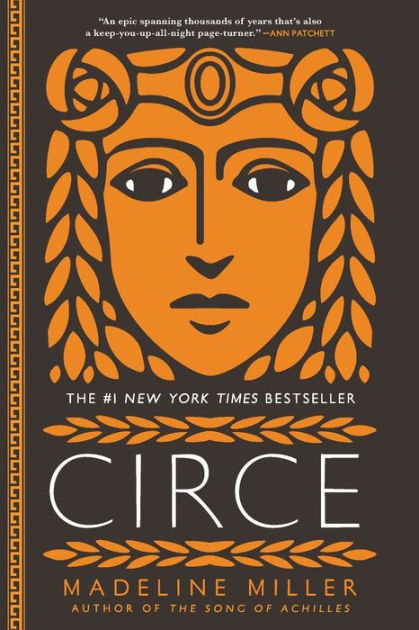
Circe by Madeline Miller
The story of the witch from The Odyssey, told from her point of view. Beautiful prose, tragic and beautiful characters, and a great share of mythical strangeness. Perfect if you want to learn how to run NPCs that are adversaries without being shallowly evil.
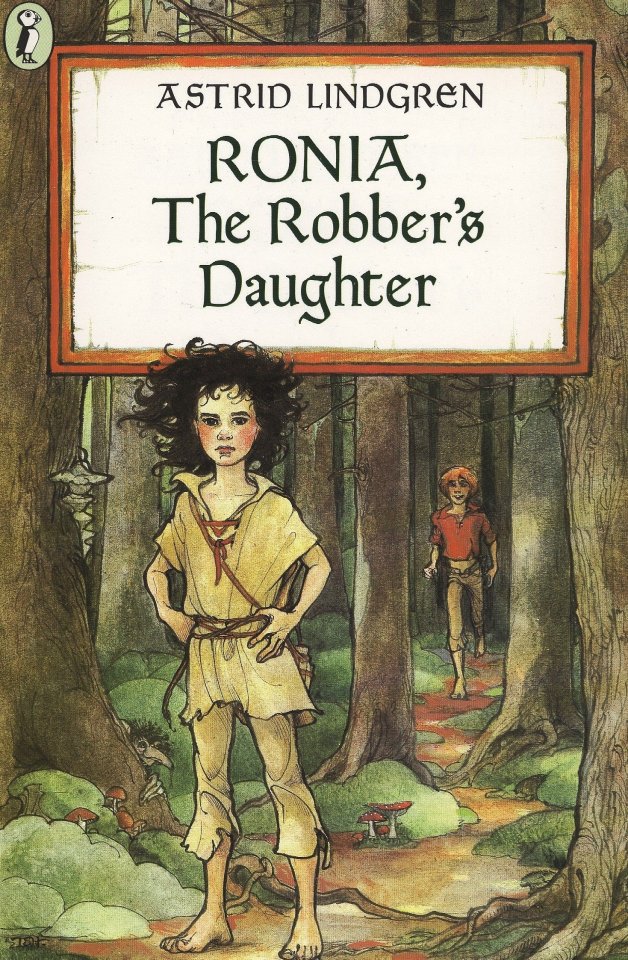
Ronia, the Robber's Daughter by Astrid Lindgren
Semi-Medieval again, but low class and vague enough that it could exist throughout ancient history. The daughter of a robber grows up in a tower full of robbers and generally has a wonderful time. Lots of weird monsters live in the woods, and there's a great starcrossed romance with someone from a rival robber gang. Perfect inspiration if you're running some cattle-raiding runs in RuneQuest; this is how to make robbers fun and sympathetic.
Read the book, watch the 1984 Swedish movie (which includes a great comedic scene of full-frontal dudity), and then watch the Studio Ghibli series.

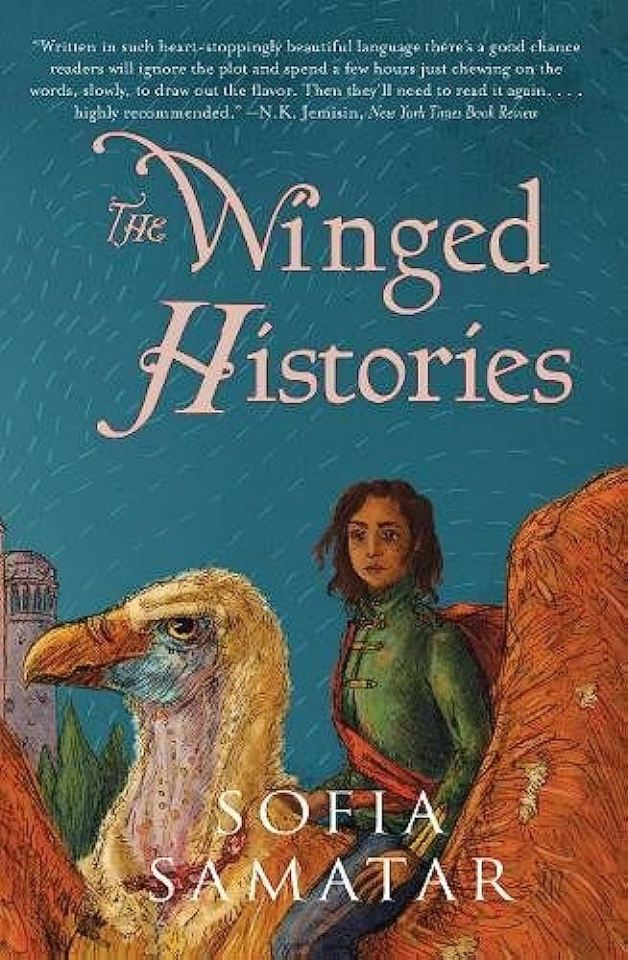
A Stranger in Olondria and The Winged Histories by Sofia Samatar
Set in a world of pepper farmers and religious fanatics who worship a mysterious inscribed stone, these books do a great job of showing how people might interact with religion, rival cults, and mystery rites. It also portrays literacy and learning to read in places where it's gated behind social gatekeeping. And once again, the prose is beautiful.
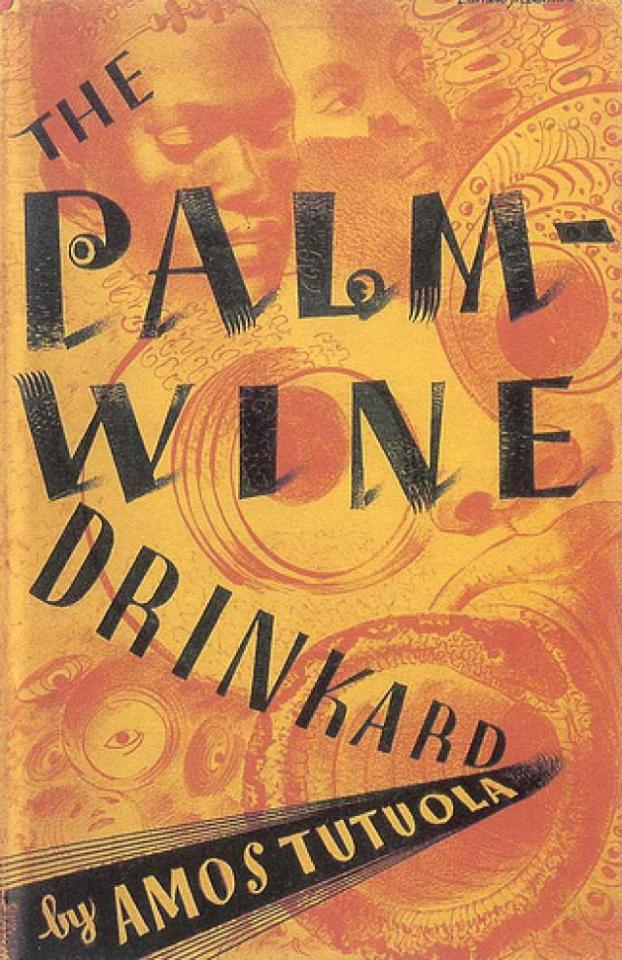
The Palm-Wine Drinkard by Amos Tutuola
The first African novel published in English outside of Africa, The Palm-Wine Drinkard is a funny, hallucinogenic story about getting drunk, stumbling through weird landscapes, and encountering fantastical spirits and people.
Tutuola also wrote My Life in the Bush of Ghosts, the inspiration for the famous(?) David Byrne/Brian Eno album. I haven't read it yet, but I'm keeping an eye out!
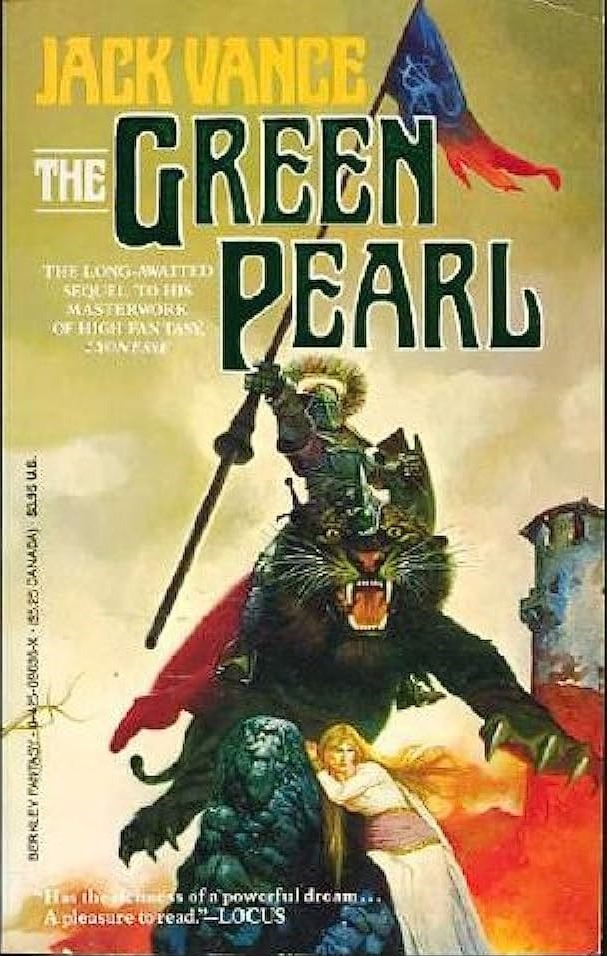
The Green Pearl by Jack Vance
This is a sequel to Lyonesse, which I haven't read because I love staring in the middle of things. Set around a mythical British Isles when Atlantis was still above the sea and part of the group of islands. Some great wizard shit, warring clans, romance, and a wizard whose name is fucking Shimrod (in case you need more convincing).
Those are my 20 novel recommendations! I'm gonna come back to add some nonfiction, comics, and myth resources for running games in fantastical ancient worlds. You can read SpeedRune, my ancient fantasy game, here.
206 notes
·
View notes
Note
What are Japanese fans like during their lives compared to Western fans? (personal: I am Asian but live in Europe so I'm raised with Asian culture, I seen them 3 times so far (all in London, within front 10 row), but during this tour, in London, I felt like the fans were very violent. I got shoved around, almost got knocked over, could barely stand properly, and some accessories from my clothes got missing. Just this time, I felt really violated and the berserk fans ruined the experience for me)
What you describe is precisely why I travel thousands of miles to see them in Japan and did not consider going to this European tour. Tokyo shows tend to take after the western crowd a bit, it got really rowdy in the last few years of Shinkiba Studio Coast, but usually you can enjoy some personal space in Japan. The crowd is more homogeneous, too much so sometimes, and moshpits are actually forbidden in Dir en grey's shows after an incident two decades ago. What I really enjoy as well is that fans are quiet except in-between songs.
But Kyo incited people in Europe to mosh and all, and he wants fans of Petit Brabancon to do the same (that band has a different management company), so at least it's something that the band is alright with outside of Japan, apparently. It's funny too because there was drama on Reddit between "fangirls" and "metalheads" who make up the DIr en grey fan base outside of Japan. It's difficult to cohabit.
43 notes
·
View notes
Text

On their travels through regional and European stages, the Slovenian sensation stopped by in Rijeka, putting on a concert spectacle for the Rijeka audience in the sold out Pogon Kulture.
Huge international hype, triggered by the recognisable song “Carpe Diem”, threw this Slovenian indie rock five into a demanding concert tempo which has resulted in several European mini tours, confirming the growing popularity of the band outside of their country’s borders.
Despite their dense schedule of sold out concerts, just before the sound check, we caught the members of the band, frontman Bojan Cvjetićanin and guitarist Kris Guštin, and talked with them more about all current events and changes that will follow in the upcoming time period.
A series of “flying” gigs
“Our lifestyle has drastically changed in the last few months. For the first time, we’re travelling as a band and encountering new situations that we’ve never dealt with before, new great experiences and new small problems that, of course, come with it.
More or less, logistics on the road are the biggest problem, but we’ve just returned from our third tour this year. We played in Poland, Lithuania, and Czechia, and it was a really great tour that lasted about two weeks,” said Bojan.
Rijeka, as the last concert in the current cycle, marks the end of travelling with a tour bus. After a week of rest, the band will go on a series of “flying gigs”, which includes Skopje, Munich, The Hague, Amsterdam, Madrid, Barcelona, and, of course, Slovenia at the end of the year.
The fact that Joker Out has already won the hearts of the audience is certainly confirmed by the awarding of "Carpe Diem" with a Golden Record in Finland, as well as recognition by the prestigious booking agency Wasserman.
“We have always welcomed people into the team according to some key to enter our circle more or less naturally, and we were lucky when things rose to the point where actually Ryan, our booking agent from Wasserman, got in contact with us because he was at our concert in London.
He liked how things worked and wanted to start working together, so we were more than happy with the fact that a man from abroad was the first to join our team, somebody who first enjoyed our performance and saw a bigger picture and saw himself as a part of it, in maybe an even bigger version, in the next few years,” revealed Bojan.

Käärijä and Let 3
As much as the process of recognition and breakthrough came suddenly, the discography of the band came at a similar pace. From their beginnings in Ljubljana in 2016, they released their first album only five years later, and the second one - less than a year after the first.
The longer process of musical growth, which began in the band’s high school days, dictated the slow pace of searching for their own sound in singles which eventually, with disruptions due to COVID, culminated in their first serious discography steps, and then in the revolution called Eurovision.
Lightning fast popularity has brought a series of strong music acquaintances to the band, of which their close relationship with Käärijä and Let 3 certainly stand out.
“We met Käärijä at a pre-party in Madrid, he was on a similar energy level as us - he didn’t take himself too seriously and we didn’t either. He was quite open-minded and had a positive approach to the whole situation, so we really connected on that level during Eurovision when huge things were happening to everyone, in the form of media pressure and new situations every day, so it suited us all to have each other to share those feelings.
We stayed in regular contact, we even performed together during our Finnish tour. He left literally everything he had scheduled in his calendar and became a part of the band for four days,” Bojan and Kris remembered.
In a way, the Jokers are an even bigger anomaly in a region marked by a certain language barrier towards its western parts. Despite the cultural and genre homogeneity, Joker Out managed to suspend the primacy of “Serbian and Croatian trap folk music”, showing and proving that Slovenian shagadelic rock and roll also has a place in this whole genre cauldron.

There’s nothing like it in the Balkans
The guys therefore confirm that Slovenia has a lot of quality to offer in terms of new artists, and concert events as well, which are richer compared to the rest of the region.
“Before we started with ex-Yugoslavia, there was always the question of if there was space for a band of this type in the Balkans, because we know this genre of music isn’t the most popular right now. Actually, there’s no band like this in the Balkans, maybe just Buč Kesidi, so we didn’t know what to expect in terms of our popularity in these regions.
I think everything went really well, we were surprised how many people were eager to hear a live band, regardless of the language they sing in,” Kris pointed out.
And it seems that the regional (and worldwide) audience welcomes every new Joker Out show with open arms, because they sing along with equal intensity to the melodies in Slovenian, and also in English, which will certainly take over the steering wheel of the band’s creative direction in the coming period.
The same is evident in the fruitful collaboration with Elvis Costello, who was delighted with the single ‘Novi Val’ and earlier this year joined in the English version of the song, ‘New Wave’, and also the latest single ‘Sunny Side of London’ - which leaves little room for doubt about where Joker Out will set up their new creative camp.
“Next year in January we are moving to London, where we plan to absorb new energies in an unfamiliar living space, so we will change our environment in order to create a new album that will be released by the end of October 2024 at the latest.
We will be more in contact with the English language, which on the one hand represents a mental break for us, because we are used to creating music in the Slovenian language, but there will still be all kinds of material - mostly English, but also songs in Slovenian, Serbian, and Croatian,” Bojan and Kris concluded.
Translation by @moonlvster, reviewed by @klamstrakur.
#joker out#jokeroutsubs#bojan cvjeticanin#bojan cvjetićanin#kris gustin#kris guštin#jan peteh#nace jordan#jure macek
52 notes
·
View notes
Text
Dollar Bin # 13:
The Mountain Goats' Sweden
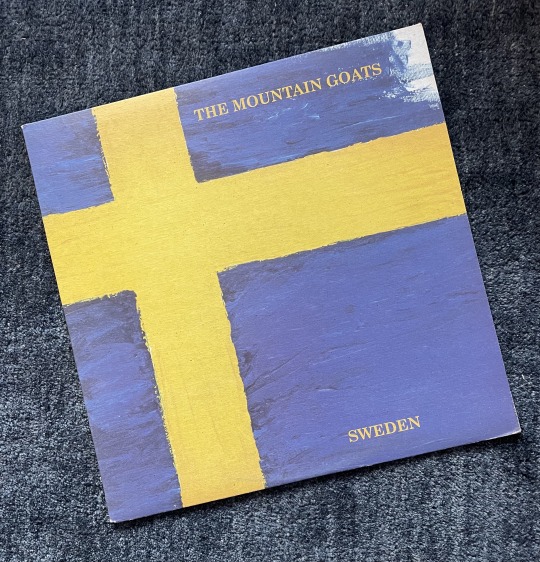
Here's a (Mostly) True story:
In the fall of 1995, John Darnielle, the founder, songwriter, frontman (and, occasionally, the sole member) of The Mountain Goats taught me how to cook.
As a second year student at Pomona College I took the one on-campus job no one else wanted: fast food line cook. No one wanted the job because it required actual labor; every other on-campus job involved sitting at a desk in a library, museum, gym or office while doing your homework. But I was ready to heat oil, and labor. I was ready to eat as much free ice cream as I could in-between orders.
The job was an odd choice for a vegetarian like me at the time: I spent the first hour of every shift slicing enough partially thawed, homogenized meat for the full day of orders ahead; once both of my hands were entirely numb from the meat's cold it was time to drink a giant vat of free Sprite and then move on to other prep tasks. Slice the tomatoes. Fire up the grill. Then, once the place opened, I'd spend the rest of my shift burning all that sliced meat to a crisp for altered and/or indifferent fellow college students.
John Darnielle trained me. He'd already released two records at that point, but I had no idea who the hell he was. My ignorance drove him nuts.
By the time he arrived each day my hands were already numb and my personally selected music was already on the stereo system. In the fall of 95 that meant a heavy rotation of Guided By Voices' Alien Lanes, Uncle Tupelo records and Yo La Tengo's Electr-O-Pura. I'd put on Tom Waits' The Black Rider at closing time so everyone would go the hell home; that always cleared the room.
But I never played The Mountain Goats; I'd never even heard of them. Throughout that fall I worked alongside a blossoming rock star. And I had no clue whatsoever.
John was the first and only friend I've ever had who wore a leather jacket. He was also ridiculously old for an undergraduate; we're talking mid-to-late-twenties. Every day he'd arrive, compliment my taste in music, trade his jacket for a weathered apron and then look at me earnestly. It was weird. I saw that he wanted me to say something, that he wanted me to know something. Desperately. But I had no idea what the hell it was.
After a bit he'd sigh and begin the day's training. Here's how to flip 'em kid; here's how to fire up that grill.
Then, at some point, he just broke down and told me: he knew James McNew; he had a record deal; he was just back from a tour of Germany, where people were crazy for any kind of American music; he was starting to make some real money (hence the leather jacket). He thought I'd like his music.
At that point I'm afraid I made the situation much, much worse. I laughed at John Darnielle and accused him of lying.
"Yeah right, dude. You're a rock star. And I'm the queen of England."
He listened. He paused. Then he shut down the register and said we needed to go outside. And so we went. College kids stood about, confused. Who was gonna get them their curly fries if the kid in The Dead t-shirt and the weird old guy took a break?
I remember, like yesterday, standing next to him in the sun. He'd taken off his apron and put his leather jacket back on. The vibe was very weird.
"Look, I'm not joking," he said. "My band used to play shows here on campus, but we're just too big for that now. Go to Rhino records; you're a vinyl guy, right? They've got my latest album on vinyl for like 7 bucks."
(Remember: this was the secret golden age of vinyl: CDs cost $12-15 and records of the same thing cost $7-12. And we all thought we needed to spend more for the CDs! If I had a time machine, I would not go back and see who killed JFK; rather, I'd spend a sweet summer with Jane Austen and then propose marriage to her, then I'd travel to 1969 to see Neil and Crazy Horse live, THEN I'd go back to 95 and buy everything I could grab on vinyl CHEAP.)
Okay, back to John Darnielle in 95: "Look: my new record is called Sweden," he said. "Only it has absolutely nothing to do with Sweden. That's the joke. Listen to it; you'll know it's me right away. I sing like I talk. People think we have like 25 members in the band, but it's really just me and this girl who plays bass. I lie in my songs, all the time. But I'm not lying to you."
And then he just walked off. In the middle of his shift! I was left to man the counter on my own. Fries were ordered; burgers were burned to a fabulous crisp. And The Black Rider came on way early. I had something I needed to do.
As soon as the quitting bell rang I hopped on my bike and road straight to the record store. As usual, the counter was manned by the angriest guy in the whole world. His name was probably Haemon, and he always sneered at whatever I was buying. This was years before High Fidelity, but he was already auditioning for Jack Black's part. The dude just hated me. I remember buying a Sonic Youth Tee in there one time. He ripped me apart while ringing me up. Is it any wonder that a few years later we all decided to shop on Amazon?
Anyway, by the time I got to the store, I'd pretty much decided John Darnielle was for real. And quite quickly I found his record, walked it to the counter, handed it over guiltily (Rhino Records had their workers stand behind a counter that was a full two feet higher than the sales floor so as to allow Jack Black Sr. behind the counter, who was tall to begin with, maximum superiority over his pathetic customers), and then, for the first and only time, the guy did not give me a hard time.
"Well, well, well," he said. "You're finally buying something of value. Poser."
(Remember when we all called each other "poser"? Now we all call each other unprintable things. Ah, the 90's...)
Well, you can see where this is going. The Mountain Goats were indeed that guy John from my day job. His singing was ridiculous, like Lou Reed if he was a passionate player of Magic, The Gathering. His melodies were infectious, like Bob Pollard if he was earnest, not drunk. His lyrics were cute and bizarre, like Dylan if he actually attended college, then managed to double major in Classics and English. The recording process was infantile, like me in the kitchen. Or rather, like me in life.
It was all precious. It was all awesome.
I returned to work a day or six later, eager to see my new friend John and tell him all about it. He was a genius! He was Robyn Hitchcock meets Johnathan Richman; he was Thomas Pynchon with a guitar; he was my new hero.
And then, I never saw him again. That moment in the sun turned out to be the last moment we ever spent together. I guess he went and got a life.
Hello out there, John! It's 28 years later and your recent publicity pics make you look, in the words of one of this blogs' 40+ (wow!) readers, like an alternative high school teacher: he sees you; he respects your pronouns. Guess what, John? That's a better description of me than you these days. You're playing the Belly Up this fall. I'm not even playing Magic, The Gathering.
So go, take a listen to Sweden! It's great. Check out the hilarious T.S. Eliot intro to I Wonder Where Our Love Has Gone. Enjoy the alternative Swedish titles for every song. Be reminded of how Hercules died: consumed by an article of his own clothing. Flip to the B Side and enjoy a nice coconut cream pie.
And while you are listening, picture an earnest and very talented guy in a leather jacket in 1995, patiently teaching a very young and hopeful kid how to flip burgers and fry up the grill. See him. See me. We're both dreaming of incredible futures: incredible futures that came true.
youtube
Happy Friday everyone! And John, while I've got you here: thanks for being patient and nice to me way back then. I'm sorry I needed you to introduce me to your music. Please tell Stephen Stills he sucks.
#the mountain goats#stephen stills still sucks#pomona college#pitzer college#tom waits#Youtube#james mcnew#guided by voices#guided meditation#uncle tupelo#the black rider
25 notes
·
View notes
Text

Music Spotlight: khai dreams
Growing up in a largely white, homogenous town, the non-binary, half-Vietnamese American artist found it difficult to connect with the people around them—“I didn't have many people in my life I could open up to,” khai recalls—but virtual worlds gave them the chance to be anyone they wanted.
khai's effortlessly catchy melodies, idyllic style, and intimate storytelling gained traction on SoundCloud, eventually leading to a tour with @mxmtoonofficial in 2019. They often write about relationships and scenic imagery, but their current wistful style is evolving into something edgier—“a little more unhinged bedroom pop music,” khai describes. That growth will be front and center on their forthcoming album Absolute Heartbreak, slated for release January 27. Check out what they had to say below.
How did you get started in music?
As a kid I really liked to sing, and I liked it even more when I got praise from people for it. So I think I naturally started pursuing music in an effort to get that same feeling, and it eventually became something I took seriously.
For someone who’s never listened to your music before, how would you describe your sound to them?
It's what my cat would listen to if it was a real guy. :)
Who and/or what impacts your creative process?
I think my friends probably have the biggest impact on my creativity. The things they make inspire me. it really gets me riled up to make cool stuff too. Also things that make me cry like good movies/anything with good writing.
Dream collaboration(s)?
The Go! Team. They are the best.
In your opinion, what’s the most interesting thing about you that people may not know?
I'm like the IT person/plumber of my friend group. If something breaks like a computer or a toilet, I'm the first one my friends call.
Lightning round! Describe each of the following in one word: Who you are, what you value the most, and what you’d be if you were a food item.
For-real!!
Love...
Dumpling?
What can we look forward to from you next?
ABSOLUTE HEARTBREAK COMES OUT JANUARY 27TH!!!!
Listen to khai dreams' new single "Panic Attack" out now.
57 notes
·
View notes
Text
Designed by architect Albert Laprade, the Palais de la Porte Dorée, whose construction began in 1928, stands at the entrance to the vast space designed to house the 1931 Colonial Exhibition in Paris. [...] [Its] style was a perfect example of a colonial modernity [...].
The display of riches extracted from the colonies, and the depiction of people bent over working, busy doing a thousand actions destined to enrich France, make up the Palais de la Porte Dorée’s 1,200-square-meter façade. It was realized at a time when many cracks were showing in the colonial empire, and when anticolonial groups in France and Europe were honing their arguments. Far from the peaceful image of worlds laboring to enrich France portrayed on this façade, [...] [t]he 1931 International Colonial Exhibition fabricated an illusion: that of a successful pacification and a working empire. [...] The government wanted to impress and dazzle the public [...].
A veritable tour de force, in a day, the public could visit Angkor Vat, Timbuktu, the palaces of Niger, or of the Queen of Madagascar. These monuments of vanquished civilizations -- now “French possessions” -- proved that access to fabulous riches had been secured. The 1931 Exhibition glorified the French colonial “civilizing mission,” but behind this euphemism were assimilation policies based on dispossession, the Code de l’indigénat (Indigenous Code), which legalized various forms of discrimination in the colonies, forced labor, and exploitation. [...] The colossal aspect of the Exhibition only fleetingly masked these fissures. [...] By its very inordinateness, the Colonial Exhibition [...] inadvertently revealed the illusion that underlay the colonial project. [...]
---
In Europe and France in the 1910s to 1920s, Black, Asian, and Arab people organized, wrote, and mobilized. Examples include the Pan-African Congress in Paris in 1919 [...]. The constituent congress of the League against Imperialism and Colonial Oppression was held in Brussels in 1927. [...] [I]t was attended by representatives of the African National Congress, [...] Albert Einstein, Henri Barbusse [...]. Let us not forget either [...] the uprisings in Vietnam in 1908; [...] the 1925 revolt in Syria; or again in Vietnam in 1930. [...] Revolts and demonstrations demanding rights broke out throughout the entire French colonial empire, including [...] the demonstrations in Abéché (Chad) in 1917; the demonstrations of the people of Gabon and the Middle Congo from 1917 to 1918 [...].
---
As an institution, the museum partook in the invention of homogeneous, racialized categories (“Africans,” “Asians,” “Arabs,” “Europeans”) [...]. The Palais de la Porte Dorée’s multiple bas-reliefs [...] form a veritable “stone tapestry” and an imposing fresco of imperialist power. The work of sculptor Alfred Auguste Janniot (1889–1969), it constitutes a colonial encyclopedia. Entitled: “L'Apport des territoires d'outre-mer à la mère patrie et à la civilization” (“The Overseas Territories’ Contribution to the Motherland and to Civilization”), it is the only of its kind in France in terms of size.
In this bas-relief, a vast, diverse, and complex world is reduced to a flat surface on which these figures’ labor contributes to the greatness of France. [...] The colony as disciplinable “Nature” [...]. Humans and animals, plants and pirogues intermix and intertwine. Here, half a body emerges from the foliage; there a child perched on a woman’s hip hovers over a cactus. Further on, the name “Sudan” spills from a lion’s mouth. There is no social life, [...] the colony is “Nature.”
This disorder contrasts with its orderly finality: the anticipated export of products to France. But it is also a disorder that evokes the ordering of the world through colonization. [...]
---
The colony was a huge enterprise in taming fauna, flora, humans, rivers, forests, and mountains. Nothing was to escape the colonizers’ eye, or control. Everything had to be renamed, ordained, arranged, distinguished according to norms that reinforced an epistemology and imposed rigid binarities on worlds that had complex understandings of the living. Colonization was a project of control, possession, and transparency.
Thanks to this bas-relief, the French were given the impression of knowing everything about a world laying at its fingertips, that colonization offered them the entire diversity of the world, pacified, disciplined, subjected. [...] The Exhibition’s Jardin d’Acclimatation was an instrument of this organization; the public could imagine it was visiting the jungle, the savannah, tropical forests, and seas comfortably and safely. [...]
We also see the extent to which structures of racism destroy the possibility of living differently, [...] the imagination, that they stifle us, that they sever ties [...]. We want to retrace the cartographies of transnational and transcontinental resistance, to give voice [...]. We no longer want to be put under house arrest, confined.
---
All text above by: Françoise Vergès. “Decolonize the City.” e-flux Architecture (Appropriations series). May 2023. [All bold emphasis and some paragraph breaks/contractions added by me. At e-flux, Vergès explains, in an introduction, that this text “is a compilation of several extracts of the book De la violence coloniale dans l’espace public: Visite du triangle de la Porte Dorée (Of Colonial Violence in the Public Space: A visit to the Porte Dorée Triangle)“.]
27 notes
·
View notes
Text
Ya'll... I just watched this Tiktok, and now I know why the trolls (specifically the pop trolls) were treated so badly in the first and third movies:
It's their ancestors' fault
Let me explain:
So we remember the movie Trolls world tour, we were introduced to the new different troll species: Techno, Classical, Country, Funk and Rock along with the K-pop trolls and Regeton Trolls, and we all know the story of what happened by the Funk trolls: The pop trolls tried homogenize all the other trolls, which lead into discourse which all the ancestors took a separate string and went separate ways. Because of this discourse, the Bergens could easily take advantage of that, and in the First Trolls movie, the trolls were going to be eaten, and who was going to be eaten? The pop trolls. (LOL karma) The pop trolls take the brunt of this and think about this:
We don't see the other trolls in the first movie affected by the bergens.
Seemingly, the pop trolls got what was coming to them (I don't hate the pop trolls plz don't @ me), and while all the other trolls were separated on one came to help (they probably didn't know or didn't want to help) with all the infighting between the tribes different creatures, examples being Velvet and Veneer from Trolls 3, could easily take advantage of the pop trolls.
Congratulations if you made it this far. I hope you don't mind my rant (^ー^)
10 notes
·
View notes
Note
Is it actually safe for a middle east tour to happen?
Well, even if it isn't, it's too late to back out now!
More seriously, according to this announcement, the Middle East (or International?) Tour is likely slated to go to Riyadh, Kuwait, Doha, and Dubai. While things could always change, these cities and the countries they're located in are some of the safest in the Middle East and, according to some indexes, in the world (Qatar, which is where Doha is located, ranks higher than Sweden, for example). And they have to be, as these cities are international travel and business hubs; they're not going to get that way by being unsafe, politically unstable places.
It's worth it, at this point, to note that the "Middle East" is not a monolith. It's not some homogeneous group of countries filled with terrorists and bombings every day. It's a large area with many distinct countries in them, each with different peoples, different cultures, and different relationships with one another and with the rest of the world. The media contributes to that, yes, but that's because the media will report the bad stuff; nobody wants to hear about how a country is one of the most peaceful places in the world with a thriving economy.
So to read of a conflict in one area and then somehow attribute it to the entire region is reductive and stereotypes them all as, well, "that place full of terrorists and bombings". As an article puts it, it's like if the only thing you knew about the US was the 9/11 attack on the Twin Towers (or, you know, all our many, many school shootings, sigh). Or saying, "Gosh, Ukraine just got invaded by Russia, do you think it's still safe to take that trip to France?" Simplistic, yes, but people don't do that to the US or European countries, so why do we do it everywhere else?
Anyway, food for thought.
9 notes
·
View notes
Text
When did you write the song “Oral,” and why are you releasing it now?
I recorded it between Homogenic and Vespertine. It was just so different; it was so poppy. It didn’t fit either album somehow. But I never forgot about it. [...]
But back in those times, we didn’t have computers, so the master tapes were all analog, physical tapes. I was asking my manager every three years, “Could you find the song?” And he could never find it. I think I fucked up; I couldn’t remember the name of it.
In March 2023, there was this aristocrat [...] who had a sex scandal or something, and there was a court case about him and his two sons. I was touring in Australia at the time, and I was watching CNN. In the ribbon of headlines at the bottom of the screen, it said, “Oral or not oral?” [...] And I was like, “Wow, that’s the name of the song: ‘Oral.'” And I texted my manager and said, “Could you look in the analog multitracks and find the song called ‘Oral,'” and he found it. Three days later, he emailed it to me. [...]
Why did you decide to make the song a duet with Rosalía?
Well, I was like, “Should I re-sing these vocals?” But that was weird because I like the vibe of the nostalgia … the mood is very specific, and that would go away if I did that. Then I was like, “Hmm, how about I get a guest who can represent 2023, and there will be some sort of a tunnel or binoculars between the two eras looking at each other?”
I did the arrangement and the beat myself, and at the time, I was very inspired by dancehall, this music that’s generated from Jamaica. [...] And then I was like, “Hmm,” because Rosalía just did sort of an experimental reggaeton album, and I was like, “Well, I guess dancehall is sort of the grandmother of reggaeton.” I’ve already been a friend of hers for a few years, so I just texted her and said, “Would you sing on this track for me? It’s for the environment.” And she just immediately said yes without having even heard it. She was just on it.
Bjork Drops Her Most Engaging Single in Years: ‘Oral,’ a Duet With Rosalia Calling Attention to ‘Cruel’ Salmon Fishing. Variety; Nov 21st, 2023
i think somehow there is an elegant resonance between the fact that both of our voices are the same age on the recording.
björk's facebook. Nov 20th, 2023
6 notes
·
View notes
Text
cw for this rambling post since i talk about sexual predation and harassment targeting teenagers as it concerns myspace and scene/emo/pop punk nonsense. its not particularly scholarly or anything just shit i keep thinking about lately
still fascinated by scene/emo revival shit i see from people younger than me, being that it was my year-older sister who was really into the scenemo shit in middle school and pop punk in high school and we were both pretty young during its height of popularity. specifically in the idolization of myspace, warped tour, etc. being pretty idealistic because they never actually interacted with it themselves. its not like i dont have an interest in the 2000s as a space of music, and the way that myspace was had an effect with regards to how musicians shared and marketed their works. but there was still plenty of drama, bullying, bigotry, and sexual abuse which becomes pretty clear when doing actual research. or if you were there. and being harassed was both inter-community and from external sources.
part of it seems to be a veneration of the idea of a simpler time before a more 'homogenized' online experience, but myspace still was social media that fell into the same trappings as its contemporaries and later successors with regards to user data, spam, stalking... maybe it's the idea that doing something as a stupid teenager was less permanent because... well a lot of myspace garbage is lost/forgotten.
but people who were teenagers on myspace still got shit for being teenagers on myspace, you get me? and they still got doxxed and targeted for drama-fiending. there's pretty notable fucking cases of this that i remember. I was as old as some of the victims were when they happened, and im sure some of them still get shit for being victims to this day.
musicians in this culture predating on teenage girls was actually A BIG DEAL in conversation with warped tour... because who do you think were taking advantage of the young audiences they marketed themselves to, and where did they have the biggest opportunity to do so?
I just think its naive to have this really sanitized view of how things were on the internet for young people then, and really just the entire culture around emo/scene and pop punk in general here. i suppose that only makes sense. but the 'community' fucking sucked then and was filled with predatory and vile behavior that went unchecked, just like a lot of communities centered around shitheads have and will continue to suck. that's just not something you can escape by going backwards or forwards in time even if you want to believe that you would be left unscathed by it.
maybe its more uncomfortable knowing that some of the people that remain nostalgic for this period and were actually there are those washed-up sex offenders lamenting on how you can't be offensive anymore
2 notes
·
View notes
Note
Lol you know I used to be a Nouis stan up until 2020/2021 i still have a soft spot for Niall but he's just too in his comfort zone too people please-y too safe too conventional too non offensive too BORING for me. and it shows in every aspect of his public being, his music, his fashion, the way he carries himself. I often feel sad bc like that other anon described him, he's lifeless. he's definitely too obsessed with being a good boy, never messing up. i guess it works bc he is allowed to be something in the industry, something that's again, non bothering, non offensive, non threatening.
the thing is, i used to think he had some sort of realness to him, unlike H. but now, whenever people talk about his personality and how likable he is i just scoff bc you mean the persona??? i doubt he shows any real emotions, if he even still has them. sorry to rant he's just been bothering me lately, ever since his tour started and he's trying to be a Harry clone but failing miserably.
I haven’t ever gone to see Niall live (I did go see Harry in 2017), and in 2018 I actually considered buying a ticket for Niall, but it never happened. Now I can’t imagine it, just like I can’t imagine seeing Harry.
Live music is supposed to be about real emotions, real showmanship, and an authentic connection. Rock music is about originality and defying boundaries. Otherwise you could stay home and stream the Eras Tour for the 50th time and save some money.
Sometimes artists are so focused on pleasing their (suburban, homogenous, radio-friendly) demographic that they release the most banal version of the lightest middle-of-the-road pop music. It’s giving Charlie-Puth-by-the-numbers, every-beat-drop-calculated, every-stem-copied from an old pop song, every move on stage a copy of someone else’s stage move.
It’s okay if this is what your audience likes, but it’s not art. You’re not an artist. No matter how you dress it up, or how much your audience paid to get in, it’s still pastiche.
6 notes
·
View notes
Note
people have a right to be upset at them and almost every atiny I have seen on twt is not dropping them, simply wanting to let them know how problematic that song is (even though they really should know given how racist the lyrics are) so don’t know why you’re acting like people can’t be upset & disappointed, especially since the vast majority is not dropping them at all
where the fuck did i make it seem like people can't be upset and disappointed ??? get off anon and face me coward ass bitch, let's get things straight face to face
i saw desitinys being affected and ofc i want them to bave justice. but the rest of twtiny are acting on their hero complex and started this mob mentality, demanding shit not only from kq and ateez but also from other atinys. now i get that boundaries are blurred through technology, but i personally don't like how entitled they all sound. the most upset people in the app were not even desi and that should say something. you do know that those people said that those who are going to the fansign in taiwan should give their time to address the issues directly to the boys but when a statement or apology comes, they shouldn't comment on it. now i understand the not accepting the apology if you're not desi part but to actually want to intentionally cause distress to the boys esp san in the middle of tour ??? wow. i'll explain my logic if anyone don't understand why i said causing distress in the middle of tour.
and pertaining to the song, i didn't know it was culturally insensitive by looking at the lyrics and i read, speak, and understand korean. It took me EXTENSIVE research to understand what was wrong and i made that realization in the middle of another kpop idol's controversy over the same song. so even to the broad public, this is not common knowledge bc i don't see people who fawn over norazo's music much and i don't go around everyday searching "racist thing people do today", i literally got better things to do. not to mention, this is not a big news in korea so ofc not everyone remembers or knows or understand what's going on. what they know is that due to modernization and advancement of technology, they are being demanded in the worst possible way to accept, understand, acknowledge, and automatically know about every single culture in this world but is not being given the help or understanding or even time to adjust. and what do you expect from a homogenous society ??? do you think in a fast-paced, no fucks given country everyone is atuned to every single cultural issue in this world ??? are YOU aware that malaysians claimed that some indonesian heritage belong to them and even got singapore to say the same in middle school textbooks ? Even I had just found this out not 2 months ago because i was engaging in the context of the issue. my point is that even you are unaware of cultural issues despite it hurting me because it's not your job to instantly know, it's my job to let you know i'm hurt and explain why. difference is, you're a coward son of a bitch hiding behind anon so i can't even start to create awareness of what hurr me. i'm not excusing anyone's behaviour bc ofc if people are hurt, the party who caused said hurt should definitely apologize and take action. but circumstances need to be seen too.
san is now being called racist or doing racist behaviour, people are demanding ateez to halt any and all activities to apologize, they're demanding other atinys to shut up but follow along. like i have a problem with the way the issue is addressed but not with the fact that the issue itself exisr. i have NEVER said no one should be upset, literally where even the fuck ???? but as you are expecting them to be more open and understanding, you too must be open and understanding that things slipped their minds, there are not much available resources in korea and people who seem so very keen on "educating" does not seem to want to educate in korean which would've been better since it bridges communication and can maybe achieve something. it's hard work trying to make people more aware but it's even harder when it's done in anger and entitlement.
Even after kq released an apology and acknowledgement of the situation, tw"tinys" still demand apology and it's up to 3 members now. who the fuck is even the other one, i don't fuckimg know but you see how this now seem like a fucking witch hunt ? It's not even about the awareness anymore.
I can go on about why this shit happens, i still have A LOT of points i can make. let me know and i'll educate you both in reading comprehension and about the issue.
8 notes
·
View notes
Quote
A work is cultivated when it is everywhere sharply delimited, but within those limits limitless and inexhaustible; when it is completely faithful to itself, entirely homogeneous, and nonetheless exalted above itself. Like the education of young Englishmen, the most important thing about it is le grand tour. It should have traveled through all the three or four continents of humanity, not in order to round off the edges of individuality, but to broaden its vision and give its spirit more freedom and inner versatility; and thereby greater independence and self-sufficiency.
Friedrich Schlegel, from ‘Athenaeum Fragments: 297.’ in Friedrich Schlegel’s Lucinde and the Fragments, trans. Peter Firchow.
11 notes
·
View notes
Text




SFW: Fluff, cuteness, comfort, interracial relationship, protective Satoru, established relationship, marriage, husband+wife, love conquers all.
⚠️WARNINGS: History, racial discrimination, racial slurs, mentions of racism, race relations, interracial marriage, foreigners, Imperialist Japan, isolationism, comfort women, Lucie Blackman, the Rape of Nanjing, rape, murder, sexual exploitation.
Prequel: Gojo Takes a Wife (also on AO3).
Footnotes on AO3

“They are disgusting.”
…
“All she wants from you is a green card.”
…
“You sellout. You married a white dog.”
…
“Wouldn't you rather date someone of your own race?”
…
Satoru took his time reading the insults underneath the enlarged black and white photographs, snorting at one couple’s caption, “Let me know if you need a bigger dick.” The portrait showed an asian man and a white woman holding hands, their faces unsmiling. How absurd. Only an insecure loser with a tiny penis would say something that stupid. He then looked to his right to see another photograph of a white woman wearing a sari next to her husband, maybe Indian or Bangladeshi, with their young son. “I hope he is born with a turban on,” it read “I hope he is born with STD's.” Okay, that one had him cringing. Yikes.
Donna Pinckley was an American photographer whose work mainly focused on racial issues within the American South. Her most famous project “Sticks and Stones” had garnered worldwide attention and had officially made its Japanese debut in Tokyo. In each photograph she would have an interracial couple stand in the center and underneath would have them write disparaging comments they had received from someone in real life. “I want the viewer to look at the portrait first and then look down and see the writing,” Pinckley explained. “I want them to see how beautiful and how much they love each other first.”
Kumari and Ichiro had already toured the gallery earlier that week and had told Hannah all about it, insisting she go. So for the last few days his wife had been begging him to take her. “It’s important we see it, Satoru,” were her exact words. “Please?”
Important? Well, how could he argue with that? Happy wife, happy life, right? He decided to take her on St. Valentine's Day, fittingly enough, but apparently he wasn’t the only one.
Satoru looked around the gallery to see the many newcomers; an Iranian man linked arm-in-arm with a Korean women, speaking to her in a mix between English and Persian; A Chinese woman and her Vietnamese girlfriend snapping a cute pic together on a bench near the drinking fountain; An elderly Japanese husband lovingly zipping his French wife’s coat, her hands painfully bent with arthritis, before they both journeyed back outside in the cold. All of them had come to see Pinckley’s work. Perhaps as a mark of solidarity.
As it were, Japan was a largely homogenous country, meaning most people formed friendships, worked together with, and married other Japanese. In Tokyo the chances of running into a foreigner were higher than most, but slim. Satoru could recall on multiple occasions when he’d been mistaken for a foreigner, with his striking blue eyes and snow white hair. That’s usually how people envisioned gaijin; someone of Caucasian or European descent; fair skin, blue eyes, light colored hair. Anyone a shade darker, a kokujin, might (but very seldom) be met with suspicion or open hostility. The subject made Satoru curious and not long after he was married, he had begun reading about gaijin baseball players and what it was like playing in Japan during the 80’s and early 90’s.
Their experiences were not always positive.
Leron Lee was a gifted baseball prodigy from sunny Sacramento, California. Shortly after high school, he was scouted by the St. Louis Cardinals, later making his Major League debut with the Redbirds at age 21. Things seemed great at the start. The Major Leagues were seen as the epitome of baseball, except Lee was confronted with an unexpected problem. He kept getting traded and the coaches continuously benched him. Why? Because there was always someone better, faster, or stronger to place in the starting lineup, and as a result Lee had gotten kicked to the curb. It reached the point where he was receiving little to no playing time, and make no mistake, Lee wanted to play. So he took a gamble, and after eight seasons playing baseball in the U.S, 29 year old Lee grabbed his passport and boarded a plane for Kawasaki, Japan to join the Lotte Orions’ organization.
His debut season in 1977 as an Orion was met with huge success, leading the entire league with 34 home runs and 109 RBIs, but Lee would soon face a second problem. The Nippon Professional Baseball league did not want their star player to be a black man, so as to maintain the “Japaneseness” of the league, as they put it. After winning the batting title in 1980. “Only five people in the Lotte organization congratulated me, “ Lee would go on to say. “The following spring when they gave me my silver bat for being the batting champion, they did it in the clubhouse. No presentation at home plate in front of the fans. They just handed it to me. They seemed ashamed.” This, and the hurl of racial epithets the drunken crowds would fling at him whenever Lee struck out or made a bad play. Any sense of complaining was taken as a show of weakness. In all his years donning the Orion’s uniform, Lee would receive no brand endorsements and had to pay for his own equipment out of pocket. Nevermind that he was one of the few gaijin players who bothered to master the Japanese language while taking considerable salary cuts. Not even his white teammates did that.
It wasn’t all bad of course. Despite these setbacks, Lee liked living in Japan and had no regrets about moving there. He even invited his younger brother to play in the NPB for a short time. (It’s worth noting that Lee also married outside his race; a Japanese woman who once served as his translator. They would go on to have two children together, both girls).
Since his retirement in 1987, a lot had changed in the NPB and how they treated their gaijin players, but that same attitude couldn't be said about Japan’s views on foreigners as a whole (at least not yet).
In 2000, the disappearance and horrendous murder of Lucie Blackman would make front page news on practically every Japanese outlet, and the world, bringing down one of the country’s most infamous serial rapists in the process. Lucie Blackman, an English national and former flight attendant, arrived in Tokyo during the summer of 2000. To make a little extra money, she and a friend each got gigs working as hostesses for a Roppongi nightclub, a job that was similar to a modern day geisha, albeit with less elegance, but less degrading than stripping (or prostitution for that matter, which is still illegal). Many foreign women, most traveling on tourist visas, would take hostessing jobs. Ostensibly, they were hired to entice men inside the club and have them order as many rounds as possible. This also provided a not so subtle way for Japanese men to strike conversation and interact with foreign women, especially white women. A natural blonde with long legs and blue eyes, Lucie Blackman exotic beauty surely wetted many men’s appetites and caught the attention of unwanted admirers. One of whom would be her rapist and killer.
Under the law, it was illegal to work in Japan with only a tourist visa, leaving many foreign women vulnerable to exploitation and blackmail. Such was the case with Lucie Blackman, and because she was a foreigner, her disappearance wasn’t taken seriously at first, but when the British Embassy got word, the story caused a considerable uproar back home in England. Where is Lucie? Who could've done this? Why aren’t the Japanese authorities doing more? Is she even alive?
It wouldn’t be until the following year, February 9, 2001, that her body was recovered. Autopsy showed that Lucie had been drugged and repeatedly raped, before being viciously murdered. Once dead, her body had been hacked to pieces and left inside a cave encased in concrete. Obara Joji, a wealthy businessman, and frequent visitor of many foreign-filled nightclubs, was charged of rape and manslaughter and sentenced to life imprisonment. However, despite swaths of evidence, prosecutors could not prove without a reasonable doubt that Obara was Lucie’s killer. Investigators would later find that not only had Obara likely raped Lucie Blackman, but possibly more than a hundred other foreign women for almost a decade without being caught. All of them, hostesses. Most of them, white.
Lucie’s tragic murder brought to light many atrocities involving foreign women and the Japanese hostess industry. However, the real questions on everyone’s mind were these: Why was her disappearance not taken seriously from the beginning? And how did a man, who had been arrested previously on charges of sexual assault, manage to get away with drugging and rapping innocent women for nearly ten years? Satoru didn’t have an answer. Thankfully, progress was being made. “Human trafficking” was now part of the Japanese lexicon and most people were very welcoming of foreigners regardless of race or nationality, especially ones like Hannah who knew the language and were respectful of the culture, but every now and then you’d encounter some right-wing kook who believed every outlandish conspiracy the Sankei Shimbun wrote, and brought it upon themselves to ruin life for everybody. Satoru wouldn’t forget the day he witnessed that reality for himself, and not at the hands of the jujutsu elite.
It was November, 2015. Hannah wanted to go for a late breakfast in Tokyo, and between teaching and missions, Satoru greatly favored the idea. It had been a while since he had spent time with his wife. So, he chose a restaurant neither of them had visited before, but unbeknownst to them, the restaurant was run by a certain…group of people.
“Sorry, your girlfriend can’t come in here.”
Satoru’s eyes narrowed at the wrinkly old man guarding the entrance. “She’s not my girlfriend, gramps. Mind telling me why my wife can’t come in?”
The man drew a puff from his cigarette and tapped on a sign placed near the doorway.
NO FOREIGNERS ALLOWED.
Satoru’s glare worsened. “What if she’s not a foreigner?”
The old man gave a chortling laugh and spat at the ground. “If she wasn’t born here, she’s a foreigner. Plain and simple.”
That riled Satoru’s anger.
“The hell? How is that even legal?”
“Hey, twerp. Don’t look at me,” the man said, showing him his hands. “I just do what I’m told. It’s not my job to make the rules. Only follow them.”
“What did you just call me, old man?”
Satoru took a threatening step forward, heatedly removing his glasses to reveal his glacial blue eyes.
Hannah, wishing to avoid conflict, quickly grabbed Satoru’s arm and got between him and the old man, bowing deeply.
“Please excuse my husband’s rudeness and for informing us of the rules. We will take our leave now. Have a nice day.”
Her Japanese was flawless as she said it. No accent or mispronunciation to be had. Absolute perfection. Even the old man seemed visibly impressed, but didn’t dare voice it out loud and breathed out another puff from his cigarette.
Satoru was still fuming about it as they walked hand in hand down the street.
“‘No foreigners allowed?’ That’s the dumbest shit I’ve ever heard. Why has no one notified their representative? If it were me, I would’ve taught that guy a lesson or phoned a lawyer. How’re you not mad?”
“He was simply doing his job, Satoru. I’m sure he’s not like that outside of work.”
Satoru abruptly stopped walking and tugged his wife’s hand, pulling her to him so they were facing each other. He hadn’t put his glasses back on.
“That’s not an excuse, Hannah.” He veered her off to the side and cupped her flushed cheeks, speaking tenderly. “The sun and moon cannot light up a crooked hole. This is your home — Heck, you voted in the election for cryin’ out loud, and your Japanese is better than most. You’re not an outsider.” His forehead connected to hers, tracing her lips with his thumb. “Not to me.”
Gojo Hannah offered him a sad smile. The kind that said, ‘I sympathize with you wholeheartedly, but I’ll say nothing more on the matter.’ With deft fingers, she reached up to rewrap the tartan red scarf around his neck - a birthday present she had gifted him last year - and stood on her tippy toes to give him a reassuring kiss.
“Come on then, you big sod, let’s go to Jade5. I remember how much we liked their pancakes.”
Hannah was willing to forgive and forget the whole encounter ever happened.
Satoru, not so much.
That was the only time his wife had ever been denied access somewhere for being a foreigner, but the Six Eyes wielder was no fool. He knew his country was not a garden full of cherry trees. The old isolationist mindset had not vanished off these shores. While it may not have profited off a global slave trade, or segregated whites from blacks, Japan was not without sins. She had committed heinous crimes in the past. Ask the Koreans how their women were treated in the midst of Japanese occupation. Or the Chinese when the Imperial Army laid siege upon Nanjing. Their contempt wasn't without justifiable cause. And with that came national and ethnic animosity on both sides. Still, to this day.
Satoru had learned much since becoming a married man. Although, that didn’t make him ‘colorblind’ of the situation. Colorblind, he thought. What a half-baked idea. While it was likely drawn from good intent, Satoru saw nothing wrong with pointing out someone’s physical characteristics. It only became an issue when it was used as a vehicle for discrimination. Hannah was English-European. She had auburn hair, hazel eyes, fair skin, and a faint dusting of freckles. She was clearly foreign, anyone with eyes could see that, but it didn’t prompt Satoru to go up to people and say, “Sorry, folks. This is a decoy. I leave my Japanese wife at home to do the cleaning.” No. Hannah was his wife, his one and only. If people didn’t like it, then that was their problem. And to be perfectly clear, most held zero qualms about their relationship. They had more prescient matters on their minds like global warming, the suicide rate, or the aging population.
Having enough of his musings, Satoru stopped skimming the rows of photographs and looked around the art gallery for his wife. He saw her standing down the hall in front of a portrait; a white man and his Japanese fiance.
“They're like us, Satoru,” she said as he came to join her.
“Yeah.” He wrapped an arm around his bride and held her close. “They sure are.”
Those idiots could cast their sticks and stones all they liked.
Their love was stronger than their hate.
#jujutsu kaisen#jjk oneshot#jjk headcanons#gojo satoru#jjk fanfic#love conquers all#❤️#satoru x oc#jujutsu kaisen fanfic#gojo fluff#Satoru x fem oc#Satoru x wife#gojo takes a wife#satoru gojo#japan#gojo x oc#jjk#arranged marriage#romance
13 notes
·
View notes